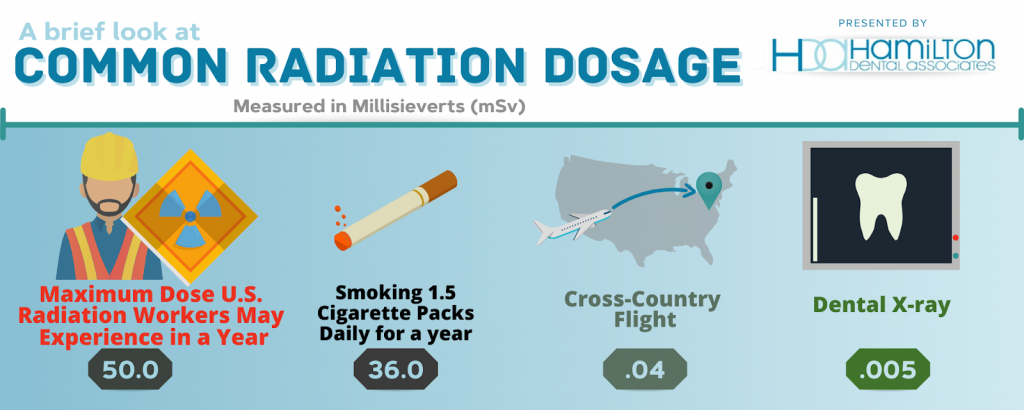
If you’ve ever been curious as to why your dentist drapes you in a lead apron and all of the staff hop out of the room every time you come in for a dental X-ray, it’s only natural to have some concerns about the procedure’s safety. Fortunately, getting modern dental X-rays doesn’t put your health at risk. The truth is, the only reason a dental team stays far away is due to the risk of gradual exposure that compounds day in and day out throughout their career. Dental X-rays are typically nothing to be worried about. Trust us—we’re the best dentists near Mercer County, NJ!
The Importance of Digital X-Rays
A digital X-ray requires a lesser amount of radiation to capture a high-resolution image than X-rays used even a decade ago. Depending on the type of film, equipment, and image being taken, it could be as much as a 90% exposure reduction! Suffice to say that today’s dental X-rays are incredibly safe.
Compared to the alternative of not receiving dental X-rays when you need them, the little bit of radiation exposure is a necessary trade-off. Since this type of diagnostic imaging allows dentists to see in or around tooth structures where pathology (bone loss, tooth decay, or even some types of oral cancer) commonly lurk, it’s crucial to detect and diagnose these conditions as soon as possible. Otherwise, such problems won’t be apparent until they’ve reached an advanced state that may require more aggressive therapies to treat.
Daily Background Radiation
We’re all exposed to radiation every day from the sun, cell phones, and even riding in airplanes. When you get a set of four bitewing X-rays (usually taken annually to check for new cavities), the total amount of radiation is only about .005 mSv (micro-Sieverts), which is less than an average dose of radiation in everyday life. To give you an idea of different types of radiation you may encounter in daily activities, consider these comparisons:

What About the Lead Aprons?
Health and radiology professionals follow the rule of ALARA, an acronym for “as low as reasonably achievable.” This guideline limits the risk of scatter radiation to both staff and patients. While minimal, scatter radiation can’t perforate lead—thus, the lead aprons are used to shield tissues most sensitive to radiation, like the thyroid gland and reproductive organs.
For more information about dental X-rays, imaging’s role in keeping up with good oral health and a beautiful smile, or general dentistry near Middlesex County, NJ, contact Hamilton dental today!






